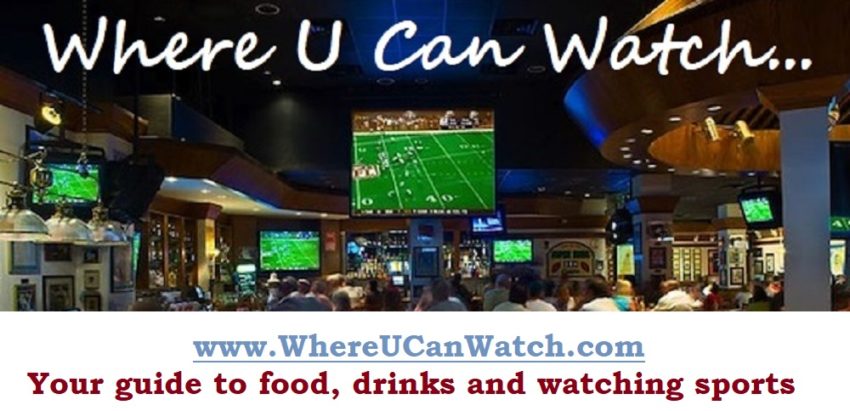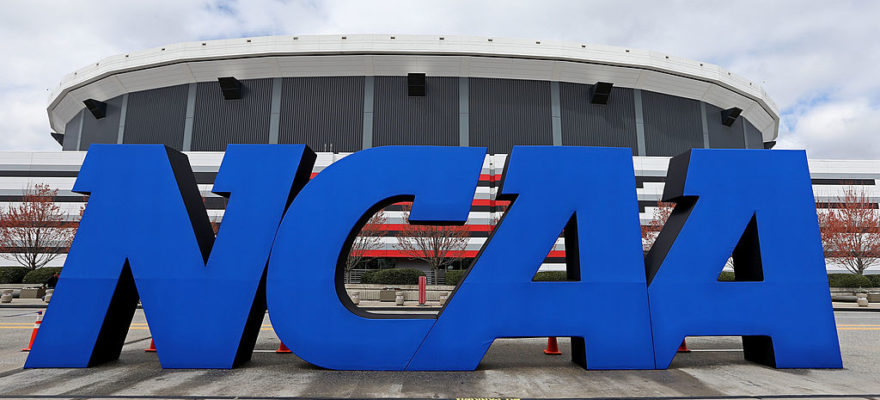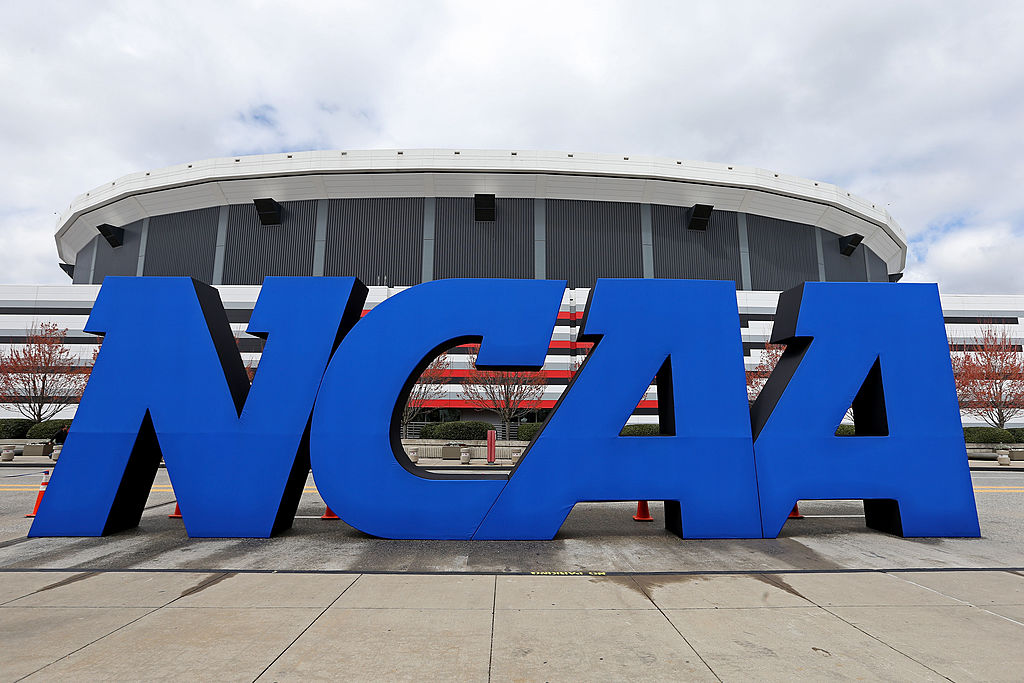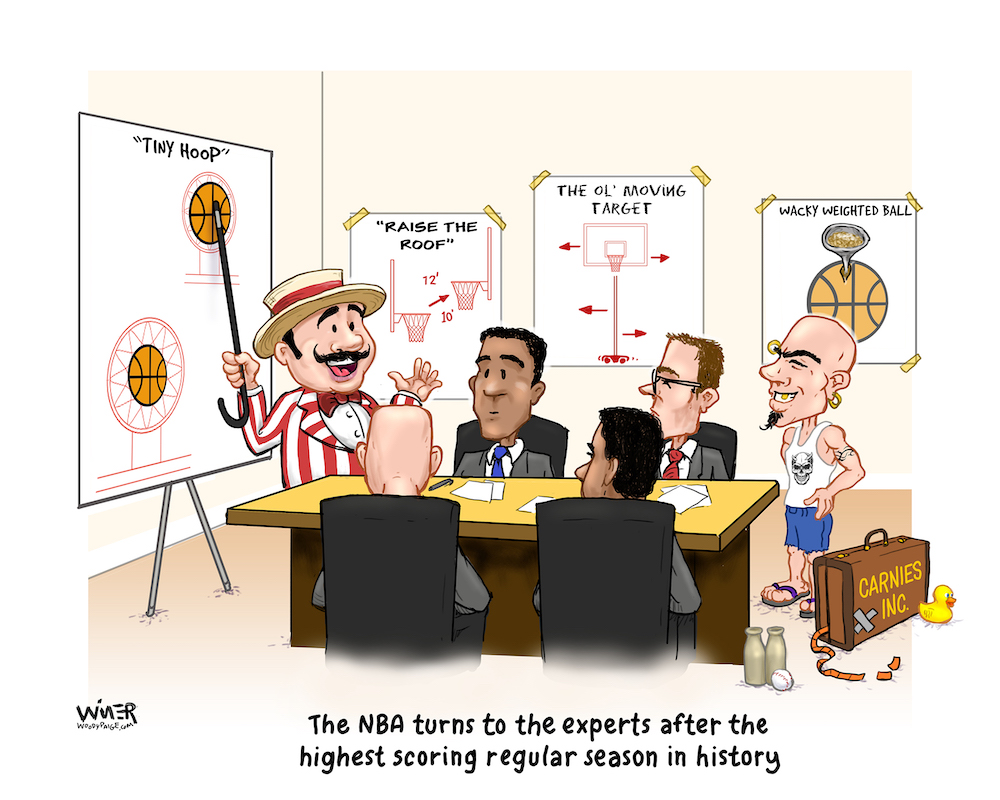You knew it would land here.
You knew once some overzealous state politicians in California began to stick their noses into college athletics, that eventually the whole mess would end up where messes go to grow and expand: Washington. D.C.
So now that the entire messy saga of “Name, Image and Likeness” has landed NCAA president Mark Emmert in front of an angry and dysfunctional congress, the question is: Who’s going to fix this?
Because based on what happened when the two got together, no one in any of the rooms has any clue.
There are a few politicians, who think they’re doing right by their constituents, but have no real idea about what the long term ramifications could be, that continue to push to get the legislation that first came to prominence in California called “Fair Pay for Play” made into the rule of law nationally.
“These poor college kids spill their guts out there and don’t get paid for it.”
That’s a bunch of total nonsense, of course.

Those in congress are great at pounding their fists and screaming about the big problem. Problem is, they have no clue about how to fix it. None.
And those who run the NCAA? They know the idea of allowing college athletes to earn endorsement money while competing as “amateurs” could crush college sports as we know them. Finally, they’re starting to speak up and say it — even though they don’t have a viable solution to promote, either.
No one with a prominent voice seems to.
“If implemented, these laws would give some schools an unfair recruiting advantage and open the door to sponsorship arrangements being used as a recruiting inducement,” read a statement from Emmert. “This would create a huge imbalance among schools and could lead to corruption in the recruiting process.”
Emmert is 100% correct. But by going to D.C. and asking congress for help (as he did last week) all he’s doing is licking chapped lips.
Here are the facts that we do know:
As things currently stand, college athletes get a cost-of-attendance stipend that compares very nicely to what they could earn with an ordinary part-time job if they were a typical college student. Beyond that, athletes also get the opportunity for a lucrative college education/degree at no cost and the chance to graduate with zero student loan debt. Ask someone in their mid-40’s still bogged down by college debt what it’s actually worth.

So it’s hard to understand why so many people can’t see all this as ample compensation for students playing the game they love, while they prepare to become professionals – like all the other college students are doing.
Preparing for life after college.
That’s not enough for the politicians, who only see the incredible money being generated but don’t understand what opening the Pandora’s Box of “Fair Pay for Play” would do to all of collegiate athletics.
Allowing college athletes to profit from endorsement deals would give sleazy boosters free reign to highjack college recruiting. Boosters – shoe companies, car dealers, banks, etc. – will have elite high school athletes going to the highest bidder.
Agents would be free to run amok on campuses all over the country – including on high school campuses, where they would be lining up future clients by promising lucrative endorsement deals.
Players (and the term student-athlete would pretty much cease to exist) will end up signing with one school, only to transfer after a season they weren’t satisfied with as soon as they get offered a better endorsement deal at a rival school. (The loosening of transfer rules – virtual college free agency – has already made this a reality, minus the enticements – which will just make it worse.)
And those smaller schools, the ones outside the Power Five who are not sharing in all this massive revenue everyone’s so concerned about? Their programs will wither up and die because they won’t have a prayer of competing on anything resembling a level playing field ever again. No more Cinderella at the Big Dance in March.
How does all that realism sound? Wanna go there? The NCAA – which represents ALL the member institutions, not just the big ones – doesn’t. And they’re 100% right.

So, until the NCAA grows a spine and finds a way to get out of the business being the free farm system for the NFL and NBA, they need to find a compromise. Relying on congress will get them nowhere fast.
So, here’s an idea for both sides to consider:
Try looking at the model used by Major League Baseball and other pro leagues. When it comes to marketing money (which is what the sale of jerseys, apparel, etc.) they created a pool. Every item that bears the official MLB logo that gets sold to consumers – from equipment, memorabilia, clothing, etc…all the way the official candy bar of MLB, is included. ALL the profits from those sales – and it’s in the millions – gets evenly split between the owners and the players association. The players half is collected by the union and distributed in yearly increments to players on the 40-man roster. If you were on the 40-man roster all season, your marketing check is well into six figures.
The collegiate version of this would be more vast, because there are so many more schools/athletes to share in this distribution. The math people could figure out the way to distribute it fairly.
The NCAA – to avoid all legal issues – could not give the star quarterback a bigger share than the women’s pole vaulter. The shares would have to be equal among scholarship recipients, the same way the current cost of attendances stipends are. Every time a consumer bought a football jersey with the number of his or her favorite player, ALL student-athletes would benefit.
This revenue sharing would add considerably to the monthly stipend college athletes are currently receiving. It would satisfy the fist banging politicians who are upset that the massive revenues going to NCAA are not trickling down to the athletes. It would be distributed evenly among ALL member schools to provide more equity within the class system. Call it “Collegiate Socialism.”
Most importantly, it would keep boosters and agents at bay and not give them any more influence on recruiting. It would maintain what’s left of the “amateur” model.
The ultimate “fix” for this remains for the NCAA to be able to use the “baseball” model for all college sports. That means the NFL and the NBA have their own “farm systems” and high school athletes would get to decide if they wanted to skip college and get paid immediately, or go to school and accept only the benefits that are currently provided by the NCAA – which are plentiful if you really look at it.
Maybe if the politicians still want to be involved, and actually want to help the cities in their communities, they could create and pass legislation that forces the professional leagues to create these badly needed farm systems for football and basketball.
At least then they’d be contributing something to the solution, instead of just exacerbating the problem.
Listen to Mark Knudson on Monday’s at 12:30 with Brady Hull on AM 1310 KFKA and on Saturday mornings on “Klahr and Kompany” on AM 1600 ESPN Denver.

More from The Woody Paige Sports Network:
- Woody Paige: Manning family’s influence on NFL may live on forever
- Ranking the potential outcomes of Tom Brady’s impending free agency
- Jeremy Roenick shares legendary Michael Jordan gambling story
- Here’s who Vegas is picking to win the 2020 Masters
- ‘Midnight’ Mel Tucker leaves CU for Michigan State and a pile of cash
- Despite coaching departures, Pac-12 is entrenched as Power 5 conference

















